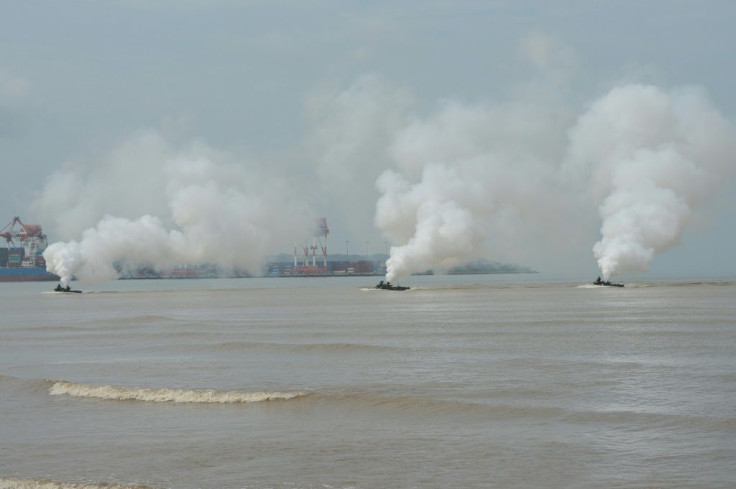After Coast Guard Ship's Intrusion, Indonesia Rebukes China Over South China Sea Claim

KEY POINTS
- China says it has sovereignty over the Spratly Islands and their waters
- Indonesia countered the statement by saying China's claims have no legal basis
- Indonesia has had a military presence in the island chain since 2018
Another Chinese Coast Guard vessel has entered Indonesia’s exclusive economic zone (EEZ) making Indonesia the fourth Asian country to protest a naval encroachment against the Communist superpower. And once again, an island group in the oil-and-gas-rich waters is the “bone” of contention.
Indonesia has rejected China's claims over the northern Islands of Natuna off the coast of West Kalimantan and East Malaysia saying they “have no legal basis" for claims in its territorial waters. Indonesian officials issued a "strong protest" to the Chinese ambassador in Jakarta, according to the Sydney Morning Herald, an Australian daily newspaper. Indonesia has had a military presence in the island chain since 2018.
Geng Shuang, Chinese Foreign Ministry spokesperson said in a Tuesday speech that China had sovereignty over the Spratly Islands and their waters, and that both China and Indonesia have "normal" fishing activities there.
Indonesia countered with a sharp rebuke Wednesday when its Foreign Ministry said in a statement, "China's claims to the exclusive economic zone on the grounds that its fishermen have long been active there ... have no legal basis and have never been recognized by the UNCLOS 1982” referring to the 1982 United Nations Convention on the Law of the Sea.
The Sydney Morning Herald article made no mention of the Nine-Dash Line but it can be postulated that it is the basis of China’s claim. It is an artificial U-shaped demarcation line that engulfs the bulk of the North China Sea that China has used to declare sovereignty in the EEZs of Vietnam, Malaysia and the Philippines.
In 2016, the Philippines won a ruling over China made by the United Nations Permanent Court of Arbitration (PCA) in The Hague. The ruling rejected the Nine-Dash Line in favor of the Philippines’ EEZ and the Spratly Islands. Jakarta made it a point to refer to the PCA ruling during its rebuke.
The “elephant in the room” in this dispute is China mentioning fishing rights as the primary objective of their forays into other country’s EEZs. Fishing is an important industry to all countries bordering the South China Sea but its value against the oil and gas reserves lying beneath the waters and the island chain’s location as a strategic military base pales in comparison.
© Copyright IBTimes 2024. All rights reserved.




















